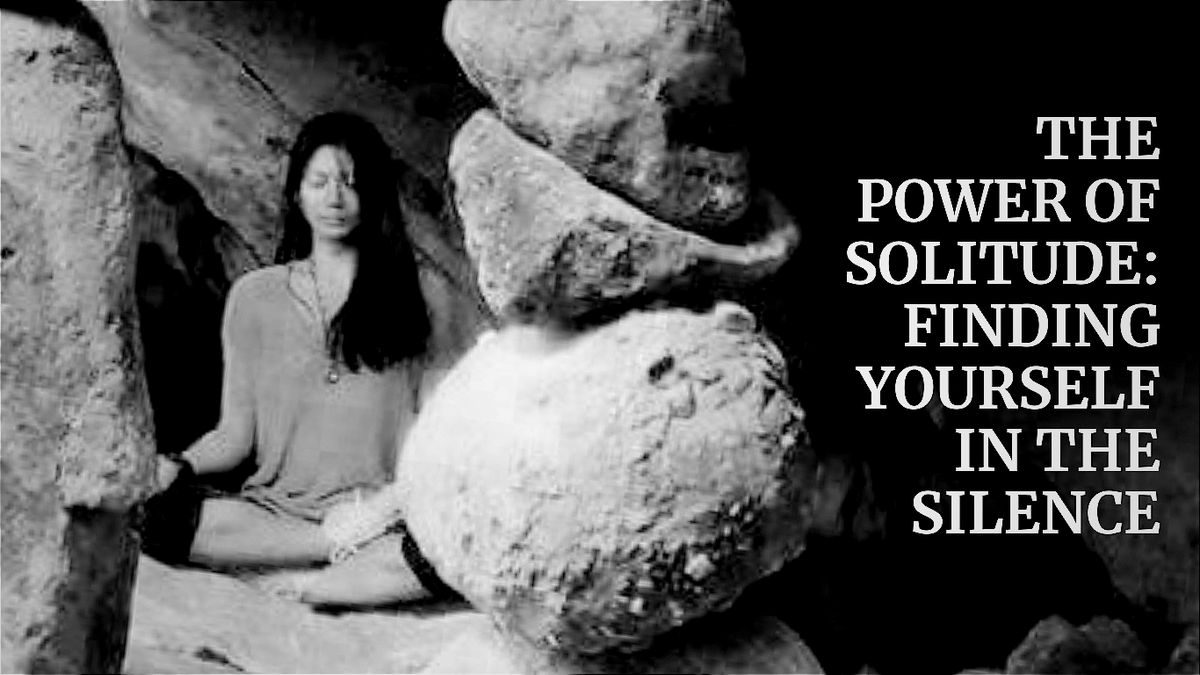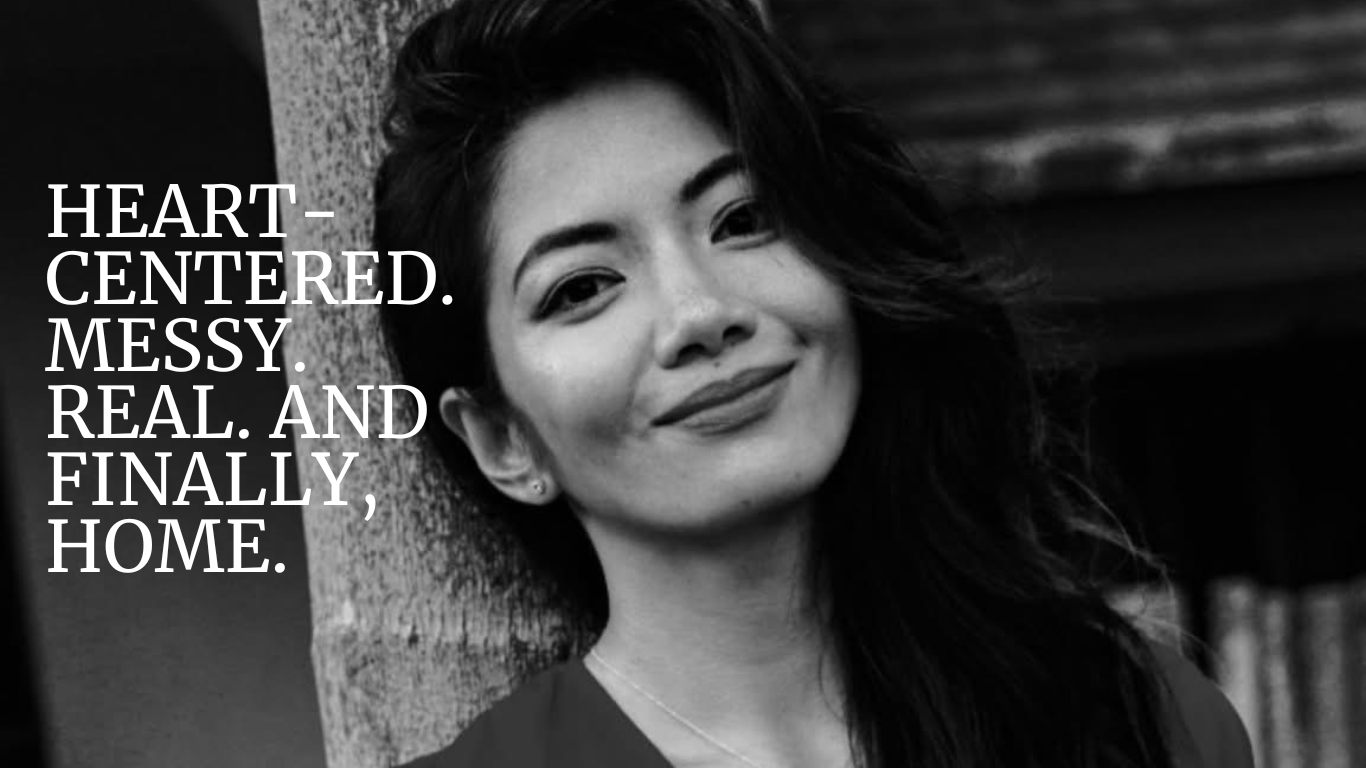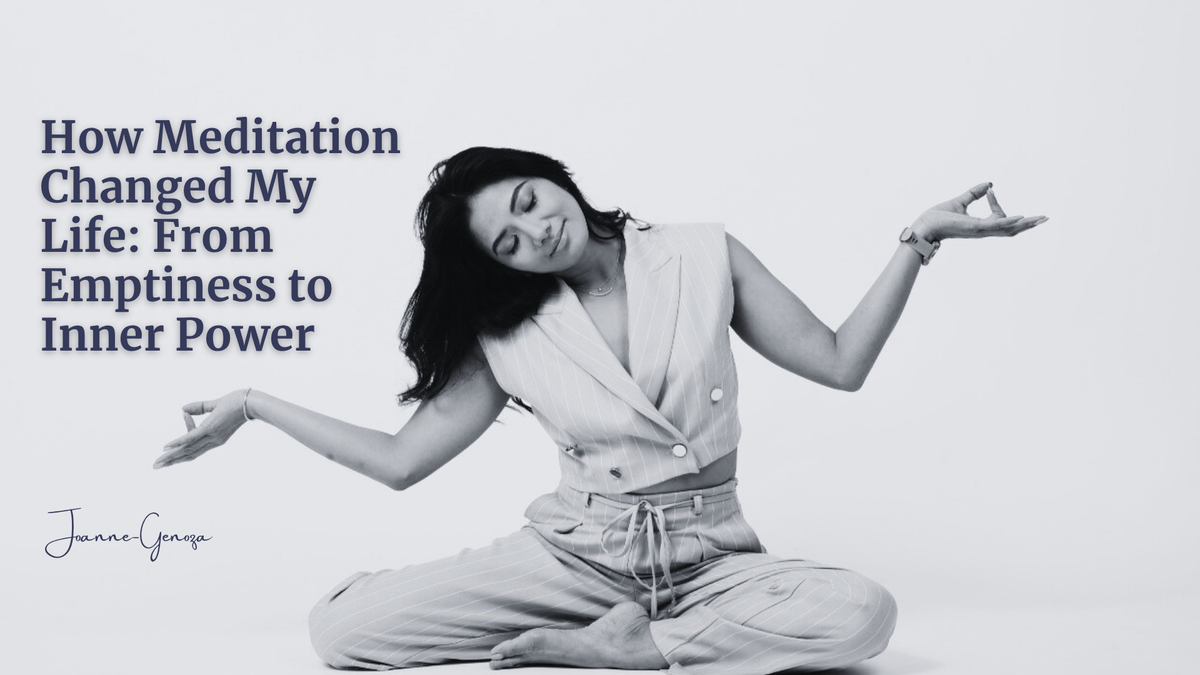The Power of Solitude: Finding Yourself in the Silence

THE ART OF BEING ALONE AND MEETING YOURSELF.
There is a rare, exquisite kind of power that blooms when you dare to be alone. Not lonely, alone. No voices, no scrolling, no agendas to chase. Just you, your breath, and the quiet hum of your own presence.
In our fast-paced, hyper-connected world, we are drenched in noise, social media feeds, endless to-do lists, relationships that demand more than they give. We are so entangled in other people’s energies that we forget the sensation of meeting our own.
But here’s the truth: the moment you return to yourself, uninterrupted, unfiltered, is the moment you remember who you really are.
The Courage to Face Yourself
For most, solitude feels uncomfortable. The mind races. Old fears and buried memories rise to the surface. Our conditioning tells us to run, to distract ourselves, to call someone, to fill the space. But the magic lies in not running.
In sitting there, heart pounding, breath deepening, and letting it all surface. Because every emotion you feel has a story to tell. Sadness, fear, longing, even joy, they are teachers, not enemies.
When you remove every distraction and simply be, you discover that the chaos in your mind begins to settle. Life starts to make sense in ways it never did before. Patterns reveal themselves. Lessons appear. And with them, a deep sense of clarity.
The Stories We Carry
Every human carries invisible imprints from the past. Your earliest relationships, especially with your parents, form the blueprint for how you love, trust, and connect today.
If you’ve never paused to meet yourself in solitude, those imprints quietly run your life. You find yourself in the same kinds of relationships, having the same arguments, attracting the same patterns. Not because you are broken, but because you’ve never stopped to rewrite the script.
In solitude, you begin to hear the narratives you’ve been living by:
“I’m not enough.”
“I’ll be abandoned if I speak my truth.”
“Love means sacrifice.”
And once you hear them, you can finally question them.
The Cost of Avoiding Yourself
When we cannot be alone, we start to grasp at anything, or anyone, to fill the silence.
We date people who aren’t aligned with our values.
We cling to relationships long past their expiration.
We trade our peace for emotional drama because stillness feels foreign.
This is emotional addiction a constant craving for stimulation, whether from romance, chaos, or attention. It’s not love. It’s avoidance dressed as connection. And it will never satisfy you.
The Gift of Emotional Presence
Solitude teaches you that you are not your emotions, you are the witness. The one who can observe, feel, and choose how to respond.
When you allow yourself to fully feel without judgment, the tension in your chest, the lump in your throat, the tears warming your cheeks, you dissolve the fear of your own feelings. They no longer control you.
From here, you connect with others not from a place of need, but from wholeness. You stop saying, “Complete me”, and instead say, “Let’s create together.”
Embracing the Uncomfortable
Yes, solitude will challenge you. But it will also refine you. It is in the discomfort that your emotional intelligence strengthens, your self-awareness sharpens, and your confidence deepens.
Start small. Thirty minutes. No phone. No podcast. Just you.
Feel what comes up. Let it wash through you.
Over time, you’ll notice something miraculous, you no longer fear the quiet. You crave it.
The Luxury of Inner Wholeness
In a world chasing the next rush, the next validation, the next “fix,” the rarest luxury is to need nothing outside yourself to feel whole.
That is the power solitude offers you.
It is the most elegant form of self-mastery, an unshakable sense of self that no circumstance, no person, no loss can take away.
The truest connection you will ever have is with yourself. From there, every relationship, every creation, every moment of your life becomes richer, deeper, and more intentional.
You don’t find yourself by seeking more from the world.
You meet yourself by sitting still, long enough to hear your own voice.



